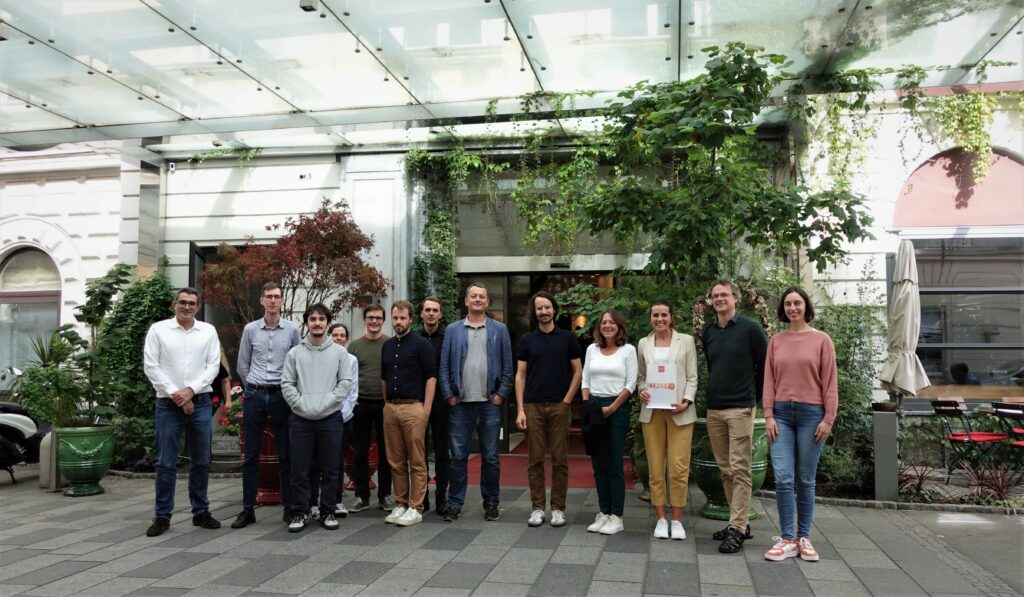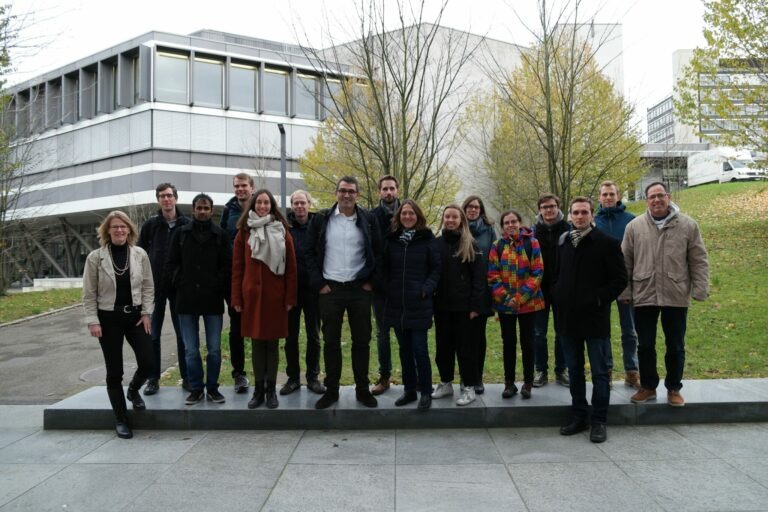The CLASSY Scientific Symposium “Catalysis in chemical networks and supramolecular assemblies: New advances in systems chemistry” was held online on 15 March 2024 from 13:00 – 16:00, attracting more than 50 participants from the industry and academia. The event zoomed in on Catalysis in chemical networks and supramolecular assemblies through nine experts in the field.
The partners had the opportunity to share their latest discoveries with a wider audience on the topics with the view of four external experts in catalysis and compartmentalisation strategies in the context of systems chemistry. All members also shared insights on the importance of facing challenges to revolutionise the methodologies in which we synthesise chemical molecules. The event marked a successful end to this ambitious and multidisciplinary project, achieving not only significant developments in the fundamental understanding of molecular synthesis, but also strong collaborations between internal and external partners of the CLASSY consortium.
The final event of CLASSY was based on presentations and discussions to demonstrate scientific results from the project. All nine speakers were available to answer questions during a dedicated time for Q&A following each of the presentations. The first part of the Symposium was guided by Andres de la Escosura, Coordinator of the CLASSY project (UAM), where the following presentations were showcased and from where we picked up the following interventions from the speakers:
- Catalytic length-controlled oligomerization with synthetic programmable templates. Dr. Bartosz Lewandowski, ETH Zürich:
“Our results open exciting possibilities for future research on supramolecular catalysts for controlled assembly of complex molecules”.
- Chemical reaction networks based on conjugate additions on beta-substituted Michael acceptors. Dr. Rienk Eelkema, Technical University of Delft
“Beta-substituted Michael acceptors open the door to interfacing with biology”.
- Multi-biocatalytic reaction systems. Prof. Wolfgang Kroutil, Universität Graz :
“Combining biocatalysis and peptide-catalysis simultaneously for a one-pot sequential two-step photobiocatalytic process”.
- Driving chemical systems away from equilibrium. Dr. Leonard Prins, University of Padova:
“An energy rachet mechanism for dynamic covalent bond formation, as a new strategy to develop supramolecular materials”.
- Active learning of biochemical reaction networks in flow. Dr. Bob van Sluijs, Radboud University Nijmegen:
“When in doubt, just perturb it”.
The second part of the Symposium was guided by Bartosz Lewandowski, ETH Zürich, who gave the floor to the following presentations and speakers, and from where we took the following interventions:
- Protocell compartments. Dr. Dora Tang, Max-Plank Institute of Molecular Cell Biology and Genetics:
“Role of compartmentalisation in regulation of biochemical reactions”.
- Programming self-assembly, replication and catalysis with minimal nucleobase sequences. Prof. Andres de la Escosura, Universidad Autónoma de Madrid:
“Our new supramolecular and nanostructured hybrid materials open an opportunity to study complex biological functions”.
- Supramolecular peptide assemblies for reactions and catalysis. Dr. Silvia Marchesan, University of Trieste:
“Establishing control over self-organisation of molecules to develop supramolecular assemblies”.
- Bistable and oscillatory behavior in replication networks out of equilibrium. Prof. Gonen Ashkenasy, Ben-Gurion University of the Negev:
“Understanding the organisational principles of biological systems”.
Did you miss the event and want to know more from the scientists? A new video with a compilation of a few highlights from the Symposium is ready to watch on the CLASSY YouTube channel.


